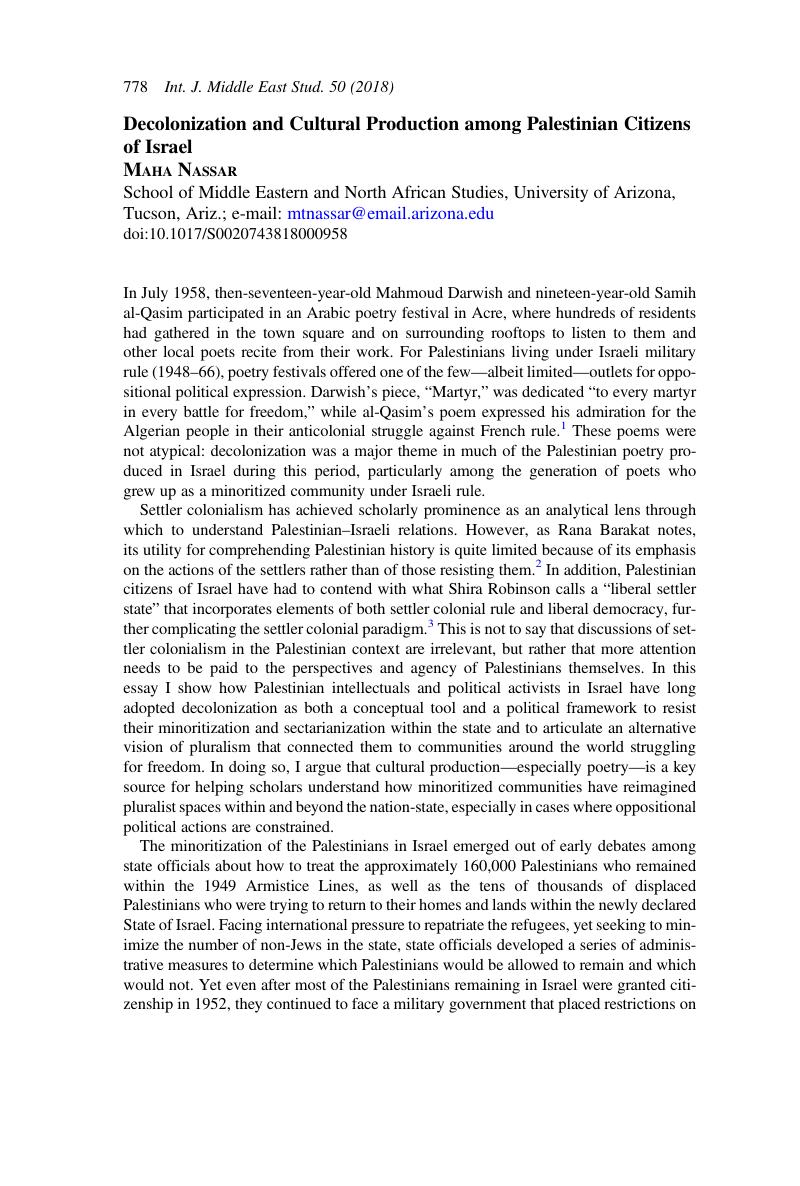Published online by Cambridge University Press: 28 November 2018

1 Khass, Muhammad, “Muʾtamar Watani bi-Lughat al-Shʿir,” al-Jadid 5, no 7 (July 1958): 48–52Google Scholar.
2 Barakat, Rana, “Writing/Righting Palestine Studies: Settler Colonialism, Indigenous Sovereignty and Resisting the Ghost(s) of History,” Settler Colonial Studies 8 (2018): 349–63CrossRefGoogle Scholar.
3 Robinson, Shira, Citizen Strangers: Palestinians and the Birth of Israel's Liberal Settler State (Stanford, Calif.: Stanford University Press, 2013)Google Scholar.
4 Ibid.
5 Ibid. See also Cohen, Hillel, Good Arabs: The Israeli Security Agencies and the Israeli Arabs, 1948–1967, trans. Watzman, Haim (Berkeley, Calif.: University of California Press, 2010)Google Scholar; and Eyal, Gil, The Disenchantment of the Orient: Expertise in Arab Affairs and the Israeli State (Stanford, Calif.: Stanford University Press, 2006)Google Scholar.
6 Nassar, Maha, Brothers Apart: Palestinian Citizens of Israel and the Arab World (Stanford, Calif.: Stanford University Press, 2017)Google Scholar.
7 Wilder, Gary, Freedom Time: Negritude, Decolonization and the Future of the World (Durham, N.C.: Duke University Press, 2015)Google Scholar.
8 Nassar, Brothers Apart, chap. 2.
9 Lubin, Alex, Geographies of Liberation: The Making of an Afro-Arab Political Imaginary (Chapel Hill, N.C.: University of North Carolina Press, 2014)Google Scholar.
10 Nassar, Brothers Apart, 86–90, 127–130.